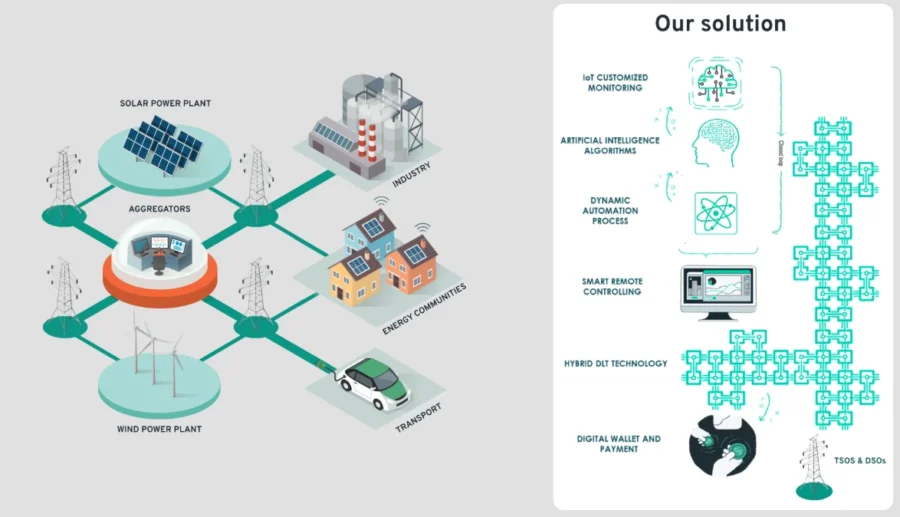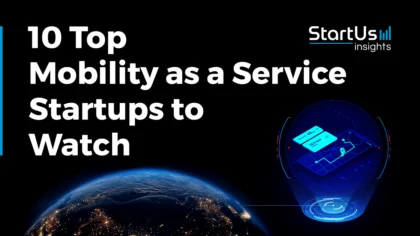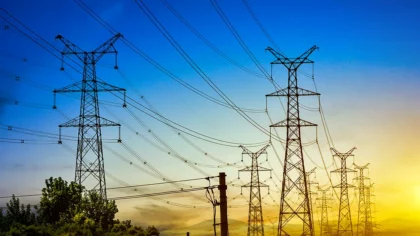Accelerate Productivity in 2025
Reignite Growth Despite the Global Slowdown
Executive Summary: Which are the Top 10 V2G Technology Companies?
- Fuse Power Management (Canada): Develops an AI-powered V2G platform that links idle EV batteries to the grid and hydro systems.
- ARTIO.Tech (Greece): Offers a smart EV charging tool that optimizes power use in buildings, microgrids, and vehicles.
- FlexyGrid (Italy): Builds software for energy communities to manage solar power, EV charging, and energy sharing.
- Plugyy Energy Solutions (UK): Its V2G-enabled chargers with bidirectional flow stabilize grids and cut costs.
- ePHANT (Germany): Provides RFID and app-based EV charging with automated billing and load management.
- Origin Charging Technologies (Serbia): Develops modular V2G stations with fast charging, predictive maintenance, and remote control.
- ChargeTronix (USA): Offers modular bidirectional EV chargers with flexible hardware and software-agnostic design.
- Bionever (South Korea): Makes smart charging modules that support AC, DC, and BPT with AI-driven load balancing.
- Rabot Energy (Germany): Provides bidirectional wallboxes and an app that matches EV charging with low-cost green energy.
- OCTOEV (South Korea): Develops a multi-EV Skycharger system with V2G integration and sequential charging control.
Global Startup Heat Map highlights Emerging Vehicle-to-Grid Companies to Watch
Through the Big Data & Artificial Intelligence (AI)-powered StartUs Insights Discovery Platform, covering over 7M+ startups, 20K+ technology trends, and 150M+ patents, news articles & market reports, we identified 10 V2G companies.
The Global Startup Heat Map below highlights the top V2G companies to watch in 2026, as well as the geographic distribution of 180+ vehicle-to-grid startups & scaleups we analyzed for this research.
According to our data, we observe high startup activity in the USA and Canada, followed by the UK. The top 5 Startup Hubs for Vehicle-to-Grid are London, New York City, San Francisco, Sydney, and Vancouver.
Discover Emerging V2G Technology Companies to Watch in 2026
We hand-picked vehicle-to-grid solutions to showcase in this report by filtering for their technology, founding year, location, funding, and other metrics. These emerging vehicle-to-grid startups work on solutions ranging from V2G charging stations and modular EV charging solutions to bidirectional charging solutions and AI-powered EV charging.
1. Fuse Power Management
- Founding Year: 2023
- Location: Vancouver, Canada
- Use For: V2G Ecosystem
Fuse Power Management offers FUSR.ai, an AI-powered platform that maximizes the battery capacity of electric fleets. It maintains grid stability and lower emissions.
Moreover, the platform links idle car batteries to the electrical grid by allowing fleet owners to plan battery discharge during periods of high demand.
FUSR.ai enables utilities to use distributed energy storage for peak shaving while paying fleet operators. The startup creates a V2G control and operations solution that works directly with hydro systems. It also coordinates with electric buses and controls bidirectional energy flows.
Additionally, the startup ensures dependable power exchange and smooth utility integration by installing V2G charging infrastructure at carefully chosen locations.
2. ARTIO.Tech
- Founding Year: 2023
- Location: Thessaloniki, Greece
- Use For: AI-powered EV Charging Tool
ARTIO.Tech builds an AI-powered EV charging tool. It converts linked energy assets and charging stations into interactive nodes in grid systems.
The charging tool combines AI and machine learning (ML) algorithms to assess real-time data from electric vehicles, buildings, microgrids, and renewable energy sources. It also modifies power distribution and charging schedules based on user behavior, energy demand, and grid conditions.
The startup further supports efficient energy use across mobility and energy networks by integrating predictive analytics to improve grid stability and load forecasting.
3. FlexyGrid
- Founding Year: 2023
- Location: Bolzano, Italy
- Use For: Software Platforms for Energy Communities
FlexyGrid creates a software platform for energy communities. It allows businesses to track, control, and maximize power production as well as reduce consumption. These platforms are beneficial in settings like homes, businesses, and electric vehicles.

Credit: FlexyGrid
The company’s V2G technology allows electric vehicles to consume as well as store and return the energy to the grid. Its platform utilizes AI and blockchain for EVs to act like a flexible energy asset. This supports grid stability, enables peak shaving, and creates new revenue streams for EV users.
The software platform also monitors energy production in real time from solar panels or other dispersed sources to link members of renewable energy communities. It compares this production with consumption requirements and controls battery storage to effectively balance supply and demand. Additionally, the platform offers estimated energy requirements, cost-cutting strategies, and usage trends.
4. Plugyy Energy Solutions
- Founding Year: 2022
- Location: City of Derby, UK
- Use For: Vehicle-to-Grid Service
Plugyy Energy Solutions offers a V2G solution that combines energy management with electric car charging. This stabilises the grid and lowers energy expenses for businesses.
The startup’s design and operation of V2G-enabled charging infrastructure permit bidirectional power flow. Using these EVs connected to its chargers, the company releases stored energy back into the grid during times of high demand.
Moreover, the V2G solution integrates intelligent control systems that automatically optimize charging and discharging schedules based on grid conditions and car battery status. This balances energy supply and demand.
5. ePHANT
- Founding Year: 2022
- Location: Cottbus, Germany
- Use For: Convenient EV Charging & Billing
ePHANT provides a convenient charging and invoicing platform for EVs. It connects EV drivers with compatible charging stations and allows starting charging sessions using a radio frequency identification (RFID) card or smartphone app. The platform also provides real-time, automated tracking of energy usage during these sessions.
Further, the platform securely handles payments and determines costs using clear pricing models to accommodate a wide range of consumer preferences. Additionally, ePHANT’s technology supports load management to effectively divide available power among cars, avoid grid overload, and ensure consistent charging speeds.
Want to Explore 180+ Vehicle-to-Grid Startups & Scaleups?
6. Origin Charging Technologies
- Founding Year: 2022
- Location: Beograd, Serbia
- Use For: V2G Charging Station
Origin Charging Technologies builds a V2G charging station system that combines ultra-rapid charging with bidirectional energy transfer. It promotes grid stability and economical energy consumption.
The startup creates and produces microservice-based software and modular hardware that allow electric cars to quickly charge during times of low demand. These solutions also enable vehicles to discharge excess energy back to the grid during peak demand.
Moreover, the system employs predictive maintenance tools to avoid downtime and continuously checks various station characteristics to ensure safe and effective operation. Origin Charging Technologies further provides remote management and quick, round-the-clock support to ensure dependability.
7. ChargeTronix
- Founding Year: 2022
- Location: Costa Mesa, California, USA
- Use For: Modular EV Charging Solutions
ChargeTronix provides modular EV charging solutions that enable V2G integration by combining customizable bidirectional technology. For example, its Phoenix Bidirectional Chargers provide two-way power flow.
The startup enables electric vehicles to efficiently charge when demand decreases and return stored energy to the grid or facility microgrids during periods of high demand.
Its interchangeable connector heads and power modules enable flexible configurations for evolving site and vehicle requirements. Additionally, the software-agnostic architecture offers a smooth connection with various management platforms. This provides operators the flexibility to use preferred control systems without compatibility issues.
8. Bionever
- Founding Year: 2022
- Location: Gyeonggi-do, South Korea
- Use For: Smart Charging Connectivity Modules & Management Systems
Bionever develops a suite of smart charging connectivity modules and management systems. It offers products like EVCC Emulator biLink E1000, OASIS P100 PLC SoC, and biLink S500 mini SECC modules. These offerings enable bidirectional energy flow between electric vehicles and the grid.
EVCC Emulator biLink E1000 optimizes communication simulation for IEC 61851-1 and DIN 70121 protocols. This offers interoperability with diverse charging stations.
OASIS P100 PLC SoC consolidates charging protocol technologies into a single chip to reduce costs and support deployments. Additionally, biLink S500 mini SECC handles alternating current (AC), direct current (DC), and bidirectional power transfer (BPT) modes.
Further, the company leverages an AI-based charging energy management system (CEMS) for load balancing. This allows utilities and fleet operators to stabilize the grid and offer vehicle-to-grid value through smart charging.
9. Rabot Energy
- Founding Year: 2021
- Location: Hamburg, Germany
- Use For: Bidirectional Charging Solutions
Rabot Energy develops bidirectional charging solutions that combine electricity pricing with V2G capability to promote sustainable energy consumption.
The startup’s bidirectional wallbox allows electric cars to draw power and release energy to the grid. It coordinates charging times with periods when electricity prices are low, based on real-time market movements.
Moreover, the wallbox utilizes a companion app, Rabot Energy, to automate charging during periods of high solar or wind power. This minimizes energy expenses and lessens dependency on fossil fuels.
10. OCTOEV
- Founding Year: 2021
- Location: Seoul, South Korea
- Use For: Multi-Flexible & Sequential Charging System
OCTOEV creates a multi-flexible and sequential charging system, Skycharger. It allows multiple vehicles to connect at once by automatically prioritizing and switching charging sessions.
The constant connection facilitates bidirectional energy flow for V2G activities and makes effective use of the charging infrastructure. Additionally, OCTOEV integrates specialized fire-resistant materials into its charging devices to limit heat events and improve safety.
The charging system’s sequencing optimizes energy distribution among linked vehicles and reduces idle time at charging stations.
Discover All Emerging Automotive Startups
The automotive startups showcased in this report are only a small sample of all startups we identified through our data-driven startup scouting approach. Download our free Automotive Innovation Report for a broad overview of the industry or get in touch for quick & exhaustive research on the latest technologies & emerging solutions that will impact your company in 2026!





![Discover the Top 10 Electric Vehicle Trends & Innovations [2026]](https://www.startus-insights.com/wp-content/uploads/2025/08/Electric-Vehicle-Trends-SharedImg-StartUs-Insights-noresize-420x236.webp)
![Explore the Top 10 Connected Vehicle Trends & Innovations [2026]](https://www.startus-insights.com/wp-content/uploads/2025/08/Connected-Vehicle-Trends-SharedImg-StartUs-Insights-noresize-420x236.webp)



